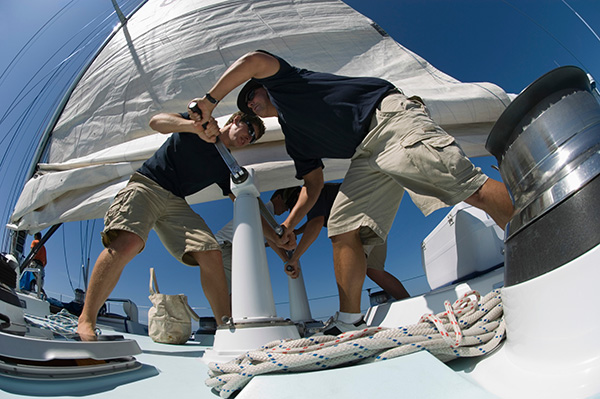The Greek government aims to make Greece a resilient, accessible and inclusive tourism destination for everyone.
With more than 16,000 kilometers of coastline, more than 6,000 islands and islets, and a well-established tourism industry, Greece presents a prime investment opportunity in the Tourism sector. The country is one of the top global tourism destinations for sun and beach holidays and provides attractive propositions for year-round themed holidays.
In addition, at a national level, coastal and maritime tourism can be a powerful tool for the development of the economy with its total economic contribution amounting to an estimated 1.4-1.5% of Greece’s GDP while the indirect contribution is considered to be 4 to 5 times higher.
Consequently, at the Ministry of Tourism we remain focused on two axes: the improvement of the infrastructure of the tourist ports-marinas and the new marketing strategy that places the maritime tourism at the top of our priorities.
Within the scope of implementing our reform agenda for maritime tourism, the Committee of Tourist Ports convened a few days ago (26/5), following its previous meeting on February 16, 2022, for the allocation of tourist ports throughout the country, while in June, another meeting is scheduled to take place.
At the same time, the financial tools offered by the European Fund for Recovery and Resilience provide us with significant means for the amelioration of maritime infrastructure required by our country in order to play a leading role in maritime tourism in the near future, enhancing its sustainability and resilience internationally.
We believe it is essential to establish in our country a complete, efficient and sustainable network of tourist ports, in accordance with the legal framework recently revised and the adopted marketing strategies of our Ministry.
In the light of the recent inclusion of the project "Upgrading Tourist Ports’’ in the Recovery and Resilience Facility, as well as the provisions of Law 4442/16 on the acceleration of business licensing, the need to promote legislation so as to simplify and optimize the framework for the establishment and operation of tourist ports was considered imperative.
In order to increase the competitiveness of our country in the field of maritime tourism infrastructure and with regards to Law 2160/1993, we proceeded with sub improvements which will increase the flexibility and speed of the procedures, along with a simultaneous emphasis on the development parameter within the framework of the New National Strategy for Tourism.
Ιn particular, the following changes were adopted in the recently published Law 4926/2022:
- Simplification of licensing (transition to the regime of approval of operation in line with the provisions of Law 4442/2016)
- Establishment of a legalization procedure for existing tourist port facilities
- Potential increase of the building ratio within the allocated tourist ports, provided that certain compensating benefits are granted
In addition to the above, at the Ministry of Tourism we promote the diversification of tourism offer across the country and throughout the year. Thematic tourism is one of our strategic goals, with rural tourism, mountain tourism, ecotourism, agrotourism, gastronomy and wine tourism being at the top of the agenda.
The strategic orientation of all projects related to diversified and inclusive tourism in Greece is to upgrade the national tourism product and achieve smart specialization at regional level, by promoting regulatory reforms, mobilizing private investments and developing lasting public-private synergies by adopting a whole-of-government approach.
Our aim is to meet rising demand for more authentic experiences that offer stronger engagement with local communities, their culture and products, as well as demand for a greener approach in all stages of the travel experience.
We wish to make Greece a resilient, accessible and inclusive tourism destination for everyone. In this respect, the Ministry of Tourism focuses on upgrading skills for the tourism workforce as well as on increasingly complying with the SDGs of the UN 2030 Agenda by mainstreaming them into the national tourism policy and by establishing a national evaluation system to monitor the progress of their implementation.
In conclusion, it is the right momentum for a profound systemic shift to a more sustainable tourism economy that works for both people and the planet. Innovation and sustainability have become the new normal in our era.
Olympia K. Anastasopoulou
Attorney-at-law, LLM,MBA,
Accredited Mediator
Secretary General for Tourism Policy & Development-Hellenic Republic
